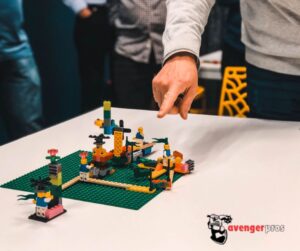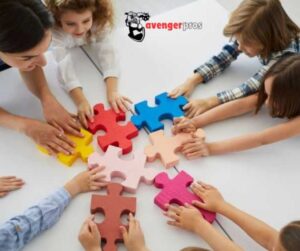
How Adventure Games Boost Creativity and Problem-Solving Skills
Introduction
We live in a fast-paced world where creativity and problem-solving are essential skills. Whether you’re solving complex work challenges or thinking of new ways to handle daily tasks, these abilities make life easier and more enjoyable. But how do you nurture them? One unexpected source is adventure games.
Adventure games are not only a form of entertainment but also powerful tools for enhancing cognitive abilities. These games challenge your brain, push the boundaries of your imagination, and present problems that need solving. In this article, we’ll explore how playing adventure games can boost both creativity and problem-solving skills, giving you a mental workout while you’re having fun.
What Are Adventure Games?
Adventure games are a genre of video games where players immerse themselves in a story-driven environment. These games usually feature exploration, puzzles, and intricate narratives, allowing players to take control of characters and influence the outcome of the game.
Key Features of Adventure Games:
Story-driven gameplay: The narrative is often the central element.
Puzzles and challenges: Players solve puzzles to progress.
Exploration: In many games, exploring new environments is a key element.
Some popular adventure games include The Legend of Zelda, Tomb Raider, and The Witcher 3. These games captivate players with compelling stories, intricate puzzles, and immersive worlds that demand critical thinking and creativity.

The Connection Between Gaming and Cognitive Skills
There’s growing research showing that video games, particularly adventure games, offer a range of cognitive benefits. Studies suggest that playing these games can enhance brain functions such as memory, attention, and reasoning in Boost Creativity.
When you’re deep in an adventure game, your brain is actively processing new information, adapting strategies, and seeking creative solutions to complex problems. It’s like a mental gym workout that strengthens your brain’s problem-solving and creative faculties in Boost Creativity.
Creativity in Adventure Games
Adventure games often force players to think creatively. They frequently present open-ended challenges that have multiple solutions, prompting you to approach them from different angles in Boost Creativity.
For instance, in Minecraft, players have the freedom to build, explore, and create whatever they desire. The game encourages exploration and creativity, providing tools to customize environments and characters. Similarly, in games like The Sims, players must design unique lives for their characters, deciding every detail from their homes to their relationships in Boost Creativity.
This freedom to experiment and think outside the box nurtures creativity, as players are constantly pushed to innovate in Boost Creativity.

Problem-Solving in Adventure Games
The heart of many adventure games lies in their puzzles. Games like Portal or Myst feature complex riddles that players need to solve to advance. As players tackle these puzzles, they learn to break down problems, analyze them from different perspectives, and develop strategies for overcoming obstacles.
The repetition of solving in-game problems helps to sharpen problem-solving skills, which can be applied in real-life scenarios. Adventure games also teach perseverance. When a player fails at solving a puzzle, they are encouraged to try again using different strategies until they succeed in Boost Creativity.
The Role of Immersive Storytelling
One of the most fascinating elements of adventure games is their immersive storytelling. Games like Red Dead Redemption 2 or Life is Strange pull players into deep, emotional narratives that require them to engage their imagination in Boost Creativity.
These engaging stories fuel creative thought processes, making players invest emotionally and intellectually in the game. The narratives act as catalysts for imagination, helping players envision various outcomes, possibilities, and paths to success in Boost Creativity.

Exploration and Curiosity
Adventure games often feature large, open-world environments that encourage exploration. This promotes curiosity as players discover hidden secrets, uncover new areas, and piece together story elements in Boost Creativity.
Open-world games like Skyrim or Breath of the Wild allow players to explore vast landscapes at their own pace. This freedom fosters creative thinking because players are constantly faced with decisions about where to go, what to do, and how to solve the problems they encounter in Boost Creativity.
Collaboration and Teamwork in Adventure Games
In many multiplayer adventure games, teamwork is essential. Players must collaborate to solve problems and achieve objectives, which sharpens both their communication skills and their ability to work within a group in Boost Creativity.
Games like Sea of Thieves and Divinity: Original Sin 2 rely on cooperative gameplay, where players need to coordinate strategies and share creative solutions to overcome challenges. These multiplayer games emphasize that collaboration can lead to more innovative and effective problem-solving.
Adventure Games vs. Traditional Learning Methods
Adventure games have been found to offer cognitive benefits that go beyond those of traditional classroom-based learning. They engage players in a way that encourages active participation, making the learning experience more dynamic in Boost Creativity.
Unlike passive learning methods, games offer interactive environments where players can test theories, experiment with solutions, and learn from their mistakes. This hands-on approach to problem-solving is far more engaging and effective than simply reading about solutions in a textbook in Boost Creativity.
Emotional Engagement in Gaming
Adventure games often create emotional connections through their storytelling and character development. This emotional investment can enhance creativity and problem-solving skills as players become more engaged in the outcomes of their actions in Boost Creativity.
Games like The Last of Us or Journey elicit strong emotional responses, prompting players to think deeply about their decisions. This emotional engagement fuels both creativity and problem-solving, as players strive to influence the game’s outcome in Boost Creativity.

Breaking Mental Barriers
One of the greatest benefits of adventure games is that they challenge players to break free from traditional thought patterns. Games like Baba is You or The Witness force players to abandon conventional strategies and think in completely new ways in Boost Creativity.
This willingness to challenge existing ideas and think outside the box is one of the key components of both creativity and problem-solving. Adventure games push players to confront problems with fresh perspectives, leading to innovative solutions in Boost Creativity.
Adventure Games as a Form of Play-Based Learning
Play-based learning has been shown to be a powerful educational tool. Adventure games tap into this by offering a fun, engaging way to learn new skills. They blend entertainment with problem-solving tasks, making learning enjoyable and interactive in Boost Creativity.
Also read this;>Cricket Champions: World Series – A Celebration of the Best in Cricket
Also read this;>The Medical Potential of Nature’s Poisons”




